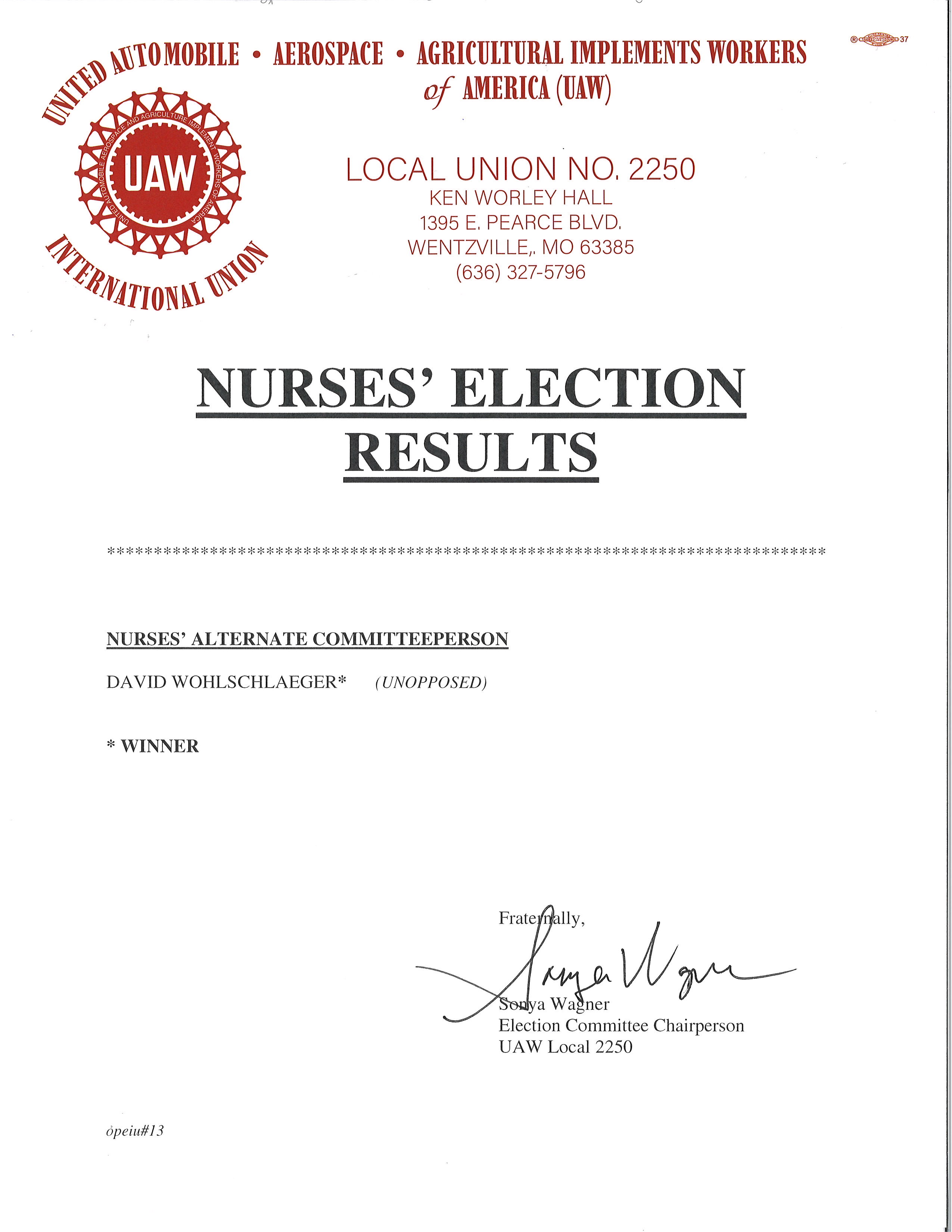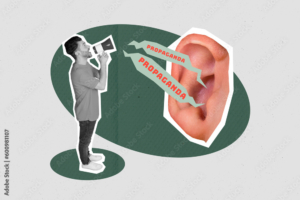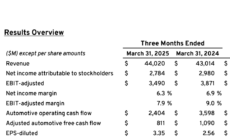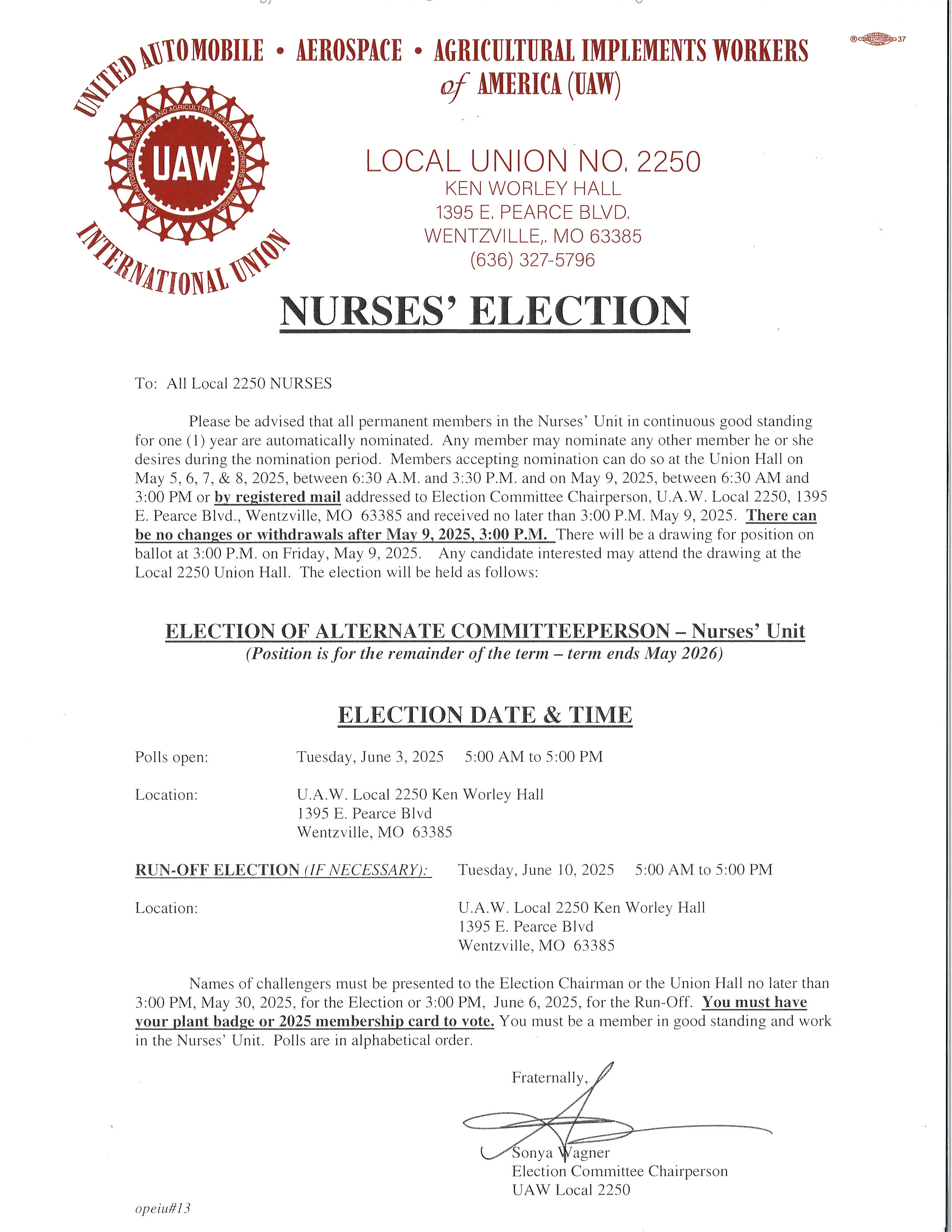-
A New Pope (From America): More Support For Worker Rights! - 24 hours ago
-
Nurses’ Election Notice: Congratulations Dave! - May 9, 2025
-
Please Say Hello To The 11 New Members Of Local 2250! - May 8, 2025
-
Point/Counterpoint: Should The Van Be Updated? - May 8, 2025
-
Your Newsline: Money Matters, New Members, Paid Leave Law - May 8, 2025
-
The Weekly Missouri Labor Report - May 5, 2025
-
Sunday Point/Counterpoint: Buying American - May 4, 2025
-
Say Hello to 51 new UAW Local 2250 members! - April 30, 2025
-
R4 Director Campbell and AD DeSpain Talk Tariffs, Politics, and More - April 30, 2025
-
Paid Leave: The Courts Stand With Voters, Will Republican Senators? - April 30, 2025
Another Big Difference Between Illinois (Pro-Worker) and Missouri (Pro-Employer)
Ilinois is providing another example of how a pro-labor state makes life better for workers. The Land of Lincoln is moving to prevent workers from being harassed if they want to have a voice at work. Illinois To Ban Mandatory Anti-Union Meetings At Work has the details…
A growing number of states are moving to bar employers from holding mandatory anti-union meetings at work, a move labor advocates hope will give employees more confidence to vote “union yes.”
Illinois is poised to become the eighth state to enact such a ban after the legislature passed a bill outlawing employers from holding mandatory meetings of a political or religious nature.
Democratic Gov. J.B. Pritzker plans to sign the legislation by the end of this month, a spokesperson told HuffPost.
On July 18th this site posted an aricle by Workers Compensation Attorney Michael Goldberg that highlighted the differences between the two states when folks get Hurt On The Job…
In Missouri, the employer chooses the doctor you see; you have no say in the matter. Seeing an unfamiliar doctor in this scenario often leads to less satisfying results, as most people don’t trust the doctor the employer picks. In Illinois, the injured workers select which doctor will treat them. While there are some limitations on who can be chosen, the fact the workers have a say leads to higher satisfaction and better results.
One of the most important differences between the two states comes about when you sustain an injury that prevents you from returning to your job. In Missouri, your employer can simply fire you, and you receive no additional benefits. You’re viewed as damaged goods, and the law allows you to be tossed aside no matter how long you have worked for the employer.
In Illinois, the employer must provide vocational rehabilitation and training so that you’re able to work somewhere else. In addition, if you’re forced to take a lesser paying job, the former employer may have to pay a wage differential to take that into account. In Illinois, workers are valued and the way they’re treated reflects that.
(Image by Mark Dawdy from Pixabay)




















